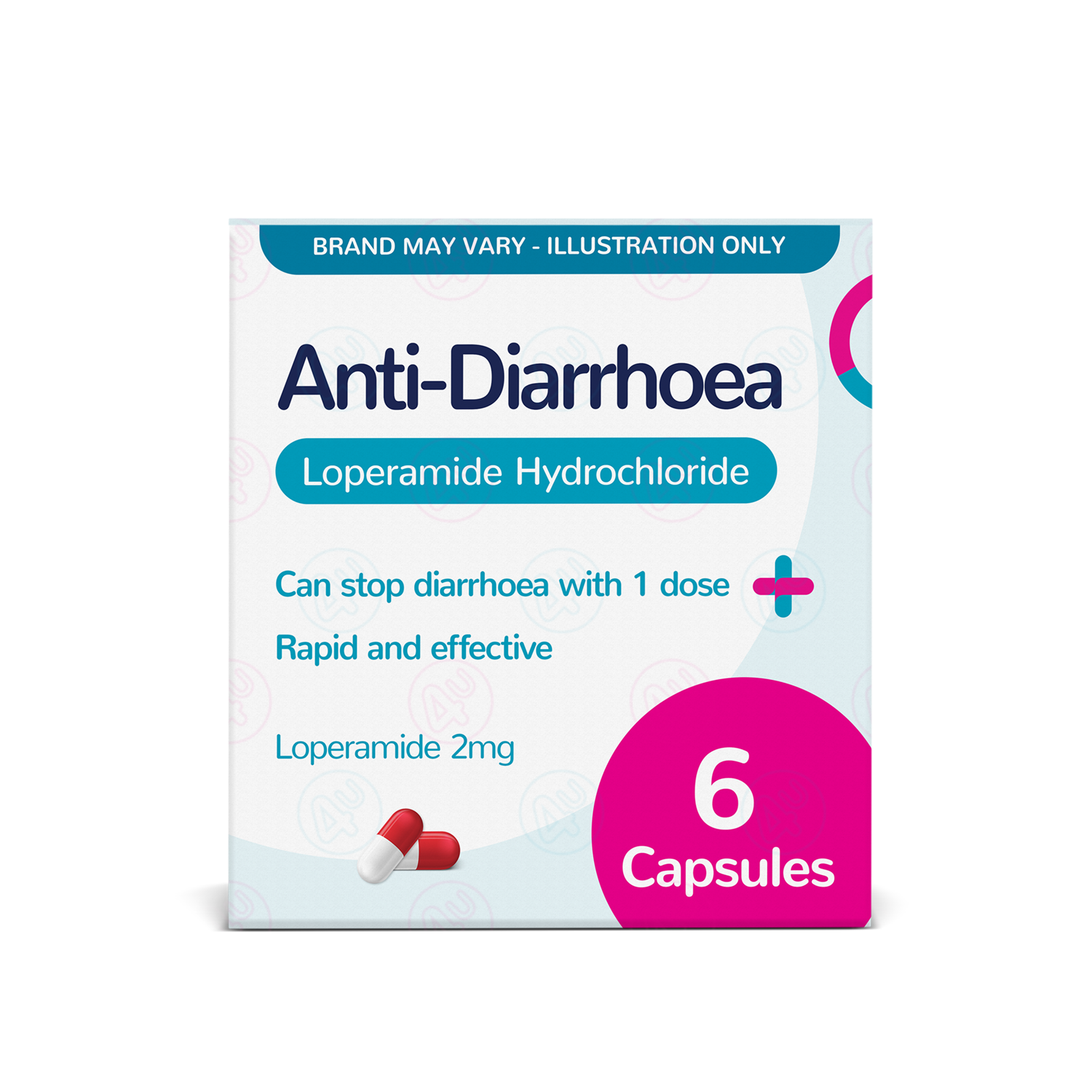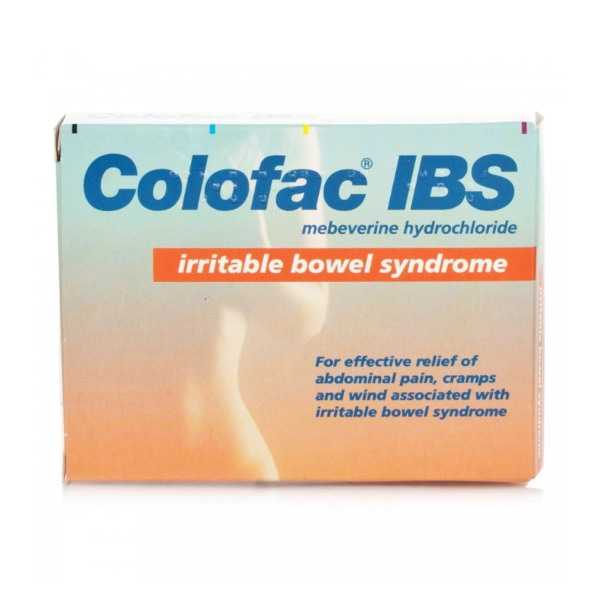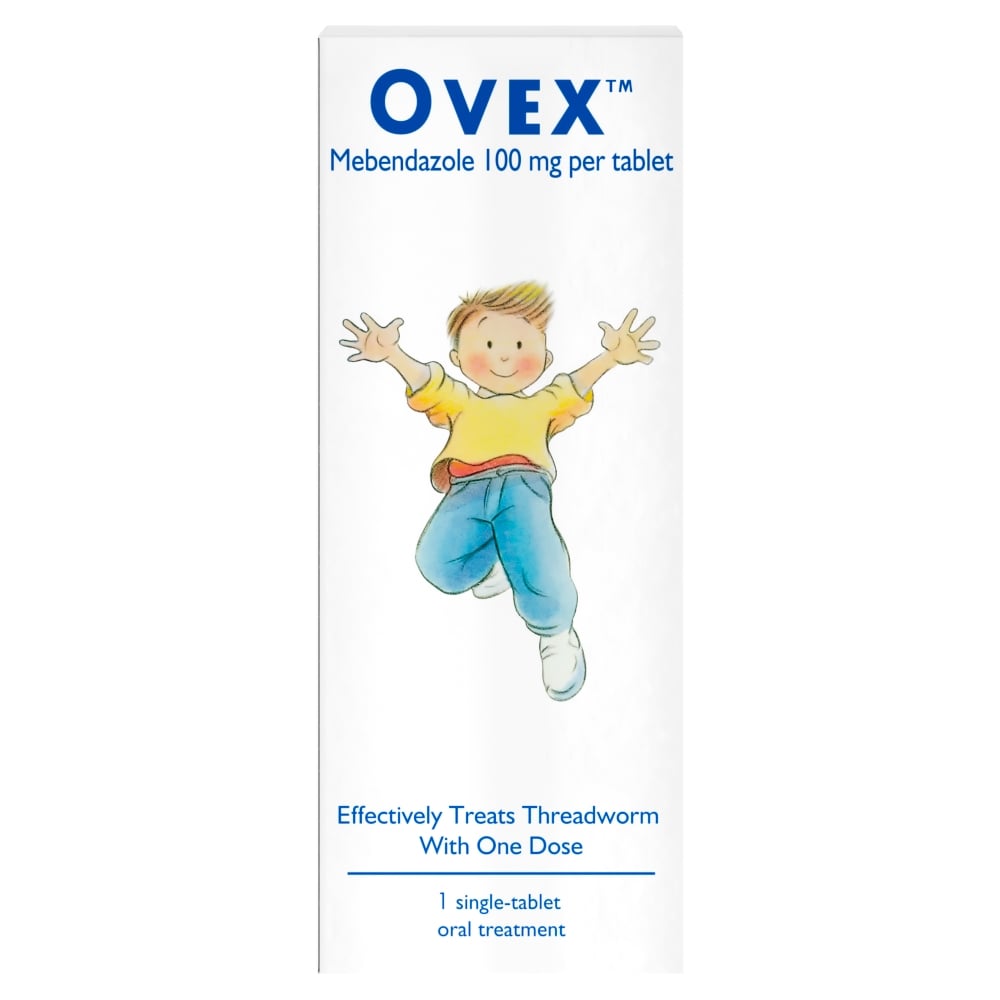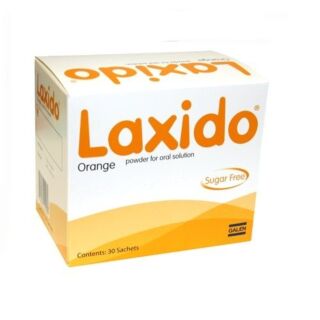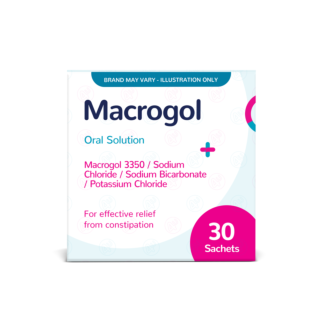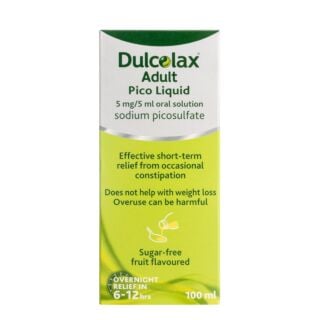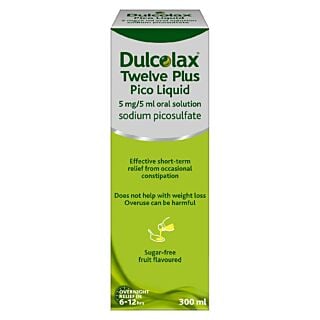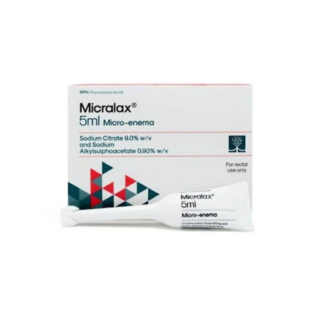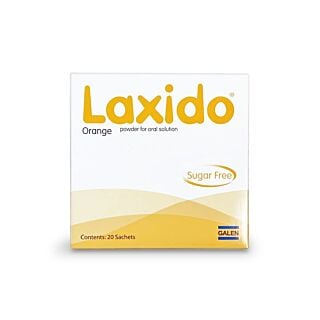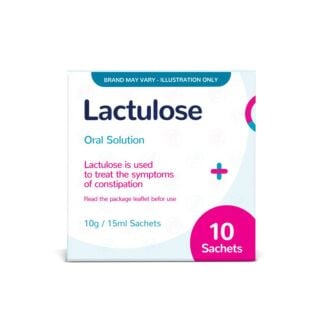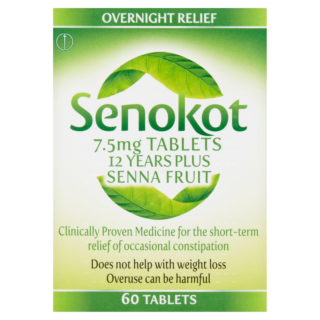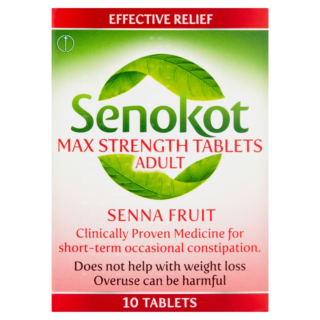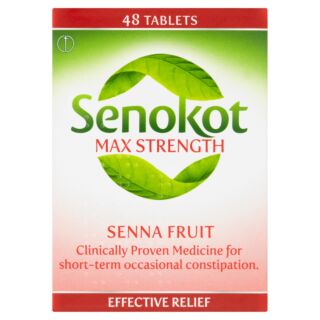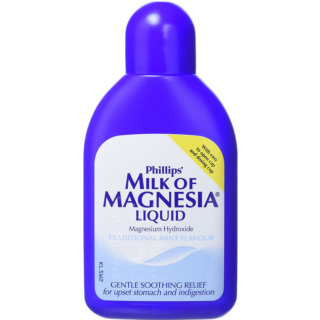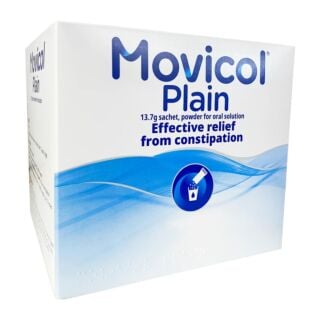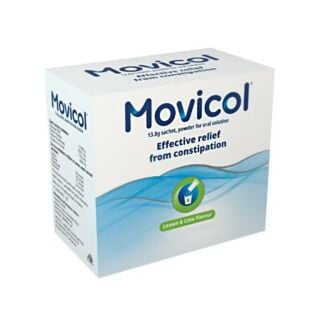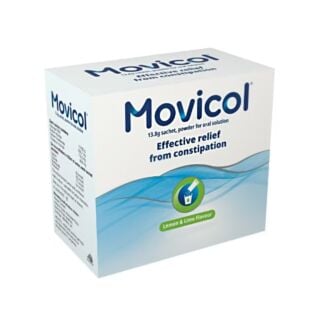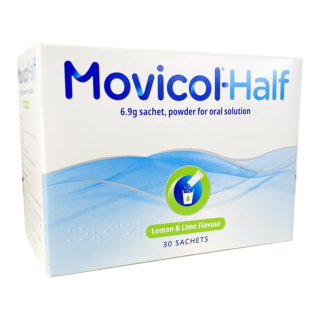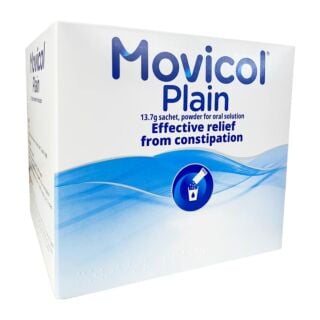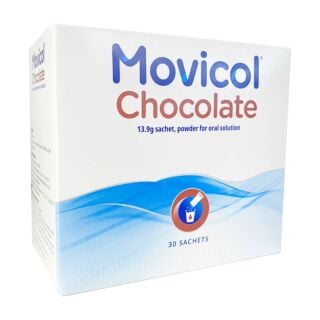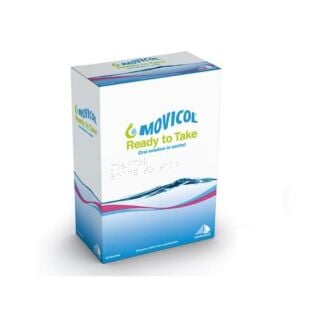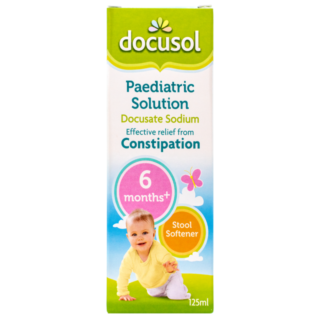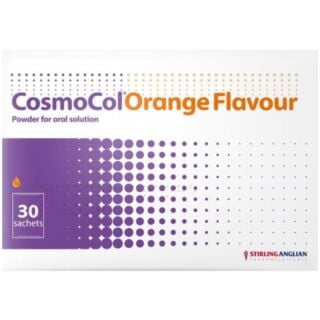Constipation
Whether it’s been a couple of days since you last passed a stool or you’ve not felt true relief for much longer than that, constipation can make you feel extremely uncomfortable and even cause pain.1 … Read More See less
Constipation is widely acknowledged as an extremely common problem.2 It affects around one in every seven adults and one in every three children at any one time.2 In addition, it affects twice as many women as men and occurs more frequently in older adults and during pregnancy.2 Although, it’s hard to get an accurate understanding of just how common it is because most people treat constipation themselves without speaking to a healthcare provider about it.3
Everyone knows the feeling of being backed up to some extent, and how the urge to find relief can become all consuming. So, let’s discuss being pregnant and constipated, baby constipation, foods to avoid when constipated and our top tips for constipation relief.
-
Phillips' Milk Of Magnesia Liquid Traditional Mint Flavour - 200ml (3 Pack)
(19)
 Now£18.99RRP £20.97
Now£18.99RRP £20.97
What is constipation?
Constipation refers to changes to your bowel movements, including pooing less often than usual or finding it hard to poo.1,4
Each person’s version of being ‘regular’ is unique to them.4 Some people poo every day, and some people only poo a couple of times a week.4 As a result, it’s quite difficult to place strict definitions on constipation.4
However, you probably have constipation if you:1,4
- Have less than three bowel movements a week or are pooing less often than usual
- Have unusually large or small poo
- Have dry, hard or lumpy poo
- Are straining or in pain when you have a poo
- Feel like you haven't fully emptied your bowels
- Have a stomach ache or cramps
- Feel bloated or sick
Chronic constipation describes the presence of these symptoms for more than three months.3
When to see a GP for constipation
You should be able to treat constipation yourself or with the help of a pharmacist, unless you:1
- Have tried various treatments and they haven’t worked
- Are constipated regularly
- Are bloated regularly
- Have blood in your poo
- Have lost weight without trying
- Feel tired all the time
- Are taking medicine that's causing constipation
- Notice sudden changes in your bowel habits
- Have pain in your tummy
If you have any of the symptoms, you should book an appointment to see your GP.
Why does constipation occur?
When food moves through your digestive tract, your intestines absorb the nutrients.4 The leftover food waste then moves from your small intestine to your large intestine and becomes poo.4 Your colon absorbs water from the waste, making it more solid.4
If you’re constipated, this process occurs too slowly.4,5 This means your colon has too much time to absorb water from the waste, making your stool dry, hard and difficult to pass.4,5
Constipation in pregnancy
Constipation is very common in pregnancy for a number of reasons.4
Firstly, your body makes more of the hormone progesterone when you’re pregnant.6 Progesterone relaxes your intestines, so they pass food waste through and out your digestive tract more slowly.6
Secondly, the foetus can compress your intestines and bowel and slow down the passage of a stool through your digestive tract.4,6
Finally, if you’re taking a prenatal vitamin that contains iron and you don’t have an iron deficiency, you can end up with too much iron which makes it harder for bacteria to break down the waste in your bowel.6
Causes of constipation
There’s not always an obvious reason for constipation, but there are a number of factors that can contribute, such as:1,2,4
- Not getting enough fibre in your diet (e.g. from fruits and vegetables)
- Not drinking enough water to help soften your stool (dehydration)
- Not getting enough exercise and spending long periods sitting or lying down
- Often ignoring the urge to poo
- A change in your routine or lifestyle, such as a change of diet or going on holiday
- Experiencing stress, anxiety or depression
- Consuming large amounts of dairy products
- Taking certain medications (e.g., ibuprofen, antidepressants and codeine)
Risk factors for constipation
Anyone can be constipated, but certain factors may increase your risk of chronic constipation, such as:4,5
- Being over 65 years old
- Being a woman
- Getting little or no physical activity
- Having a mental health condition, such as depression or an eating disorder
- Not eating enough high-fibre foods
Complications of constipation
Constipation doesn’t normally lead to any complications. However, chronic constipation can cause issues such as:4,5
- Haemorrhoids and piles (swollen blood vessels around the anus)
- Anal fissures (torn anal tissues)
- Faecal impaction (hard stools backed up into the colon)
- Rectal prolapse (tissues of the rectum that have slipped out of the anal opening and become exposed)
- Diverticula (infection in your colon wall)
- Urinary incontinence (leaking urine)
Getting relief from constipation
Unfortunately, there’s no treatment that can give you instant constipation relief. Diet and lifestyle changes are usually the first treatment options recommended.2 However, you can also try improving your toilet routine and using strong laxatives.
Treatment options include:1,2,4,9,10
Diet and lifestyle changes
Constipation can often be treated with simple changes to your diet and lifestyle. You can even make these adjustments when you’re pregnant. The results won’t be instant but, if you make changes you can stick to long-term, they should last.
To make your stools easier to pass:
- Eat a healthy, balanced diet
- Eat more high-fibre foods (e.g., fruits, vegetables, whole grains and oats)
- Eat fruits that contain sorbitol (which works like a natural laxative; e.g., prunes, apples, apricots, grapes, raisins, raspberries and strawberries)
- Avoid processed meats, fried foods and refined carbs like white bread, pasta and potatoes
- Add some bulking agents (e.g. wheat bran) to your diet
- Drink plenty of fluids, like water, and avoid alcohol
- Get regular exercise
Improve your toilet routine
Did you know you can prevent constipation by sticking to three simple toileting habits?
- Try to use the toilet at the same time and in the same place every day, and give yourself plenty of time to go
- If you need to poo, don’t resist the urge and go straight away
- Rest your feet on a low stool and, if possible, raise your knees above your hips while trying to do a poo
Constipation medicine
If diet and lifestyle changes aren’t helping, you can buy laxatives over the counter to help you pass stools.
There are different types of laxatives available, with different effects on your digestive system. Most work within three days and should only be used for a short time, unless you have a medical condition or are taking a medicine long-term that means your constipation is unlikely to resolve on its own. You should always drink plenty of fluids when taking laxatives.
Bulk-forming laxatives
These work by helping your stools to retain fluid, making them softer and easier to pass.
Bulk-forming laxatives include ispaghula husk, methylcellulose and sterculia. These usually work within two to three days.
Osmotic laxatives
If bulk-forming laxatives don’t work for you, osmotic laxatives may help as these increase the amount of fluid in your bowels. This works as a stool softener and gives your body the signal it needs to pass them. Osmotic laxatives include lactulose and macrogol, which are safe for use in pregnant people. These usually work within two to three days.
Stimulant laxatives
If your stools are soft, but you still have difficulty passing them, these are the best laxatives for the job. These fast-working laxatives stimulate the muscles that line your digestive tract, helping them to move stools along your large intestine to your anus. Stimulant laxatives include senna, bisacodyl and sodium picosulphate. They start to work within six to 12 hours but are usually only used on a short-term basis.
Suppositories
If you have severe constipation that has caused faecal impaction and laxatives haven’t helped, you may be recommended to try a constipation suppository. This is designed to be inserted into your anus, where it will dissolve and be absorbed into your bloodstream. Suppositories include Bisacodyl.
How to relieve constipation in babies
The best way to relieve constipation in babies depends on how old they are and whether they are eating solids or not:9
- If they’ve not been weaned – give them extra water between their feeds, try gently moving their legs in a bicycling motion or massage their tummy
- If they are eating solids – give them water, diluted fruit juice or encourage them to eat fruits such as apples, apricots, grapes, peaches, pears, plums, prunes, raspberries and strawberries
Sources
- https://www.nhs.uk/conditions/constipation/
- https://www.nhsinform.scot/illnesses-and-conditions/stomach-liver-and-gastrointestinal-tract/constipation/#about-constipation
- https://cks.nice.org.uk/topics/constipation/
- https://my.clevelandclinic.org/health/diseases/4059-constipation
- https://www.mayoclinic.org/diseases-conditions/constipation/symptoms-causes/syc-20354253
- https://my.clevelandclinic.org/health/diseases/21895-pregnancy-constipation
- https://health.clevelandclinic.org/home-remedies-for-constipation
- https://www.hey.nhs.uk/patient-leaflet/relieving-constipation-and-promoting-healthy-bowels-improving-you-bowel-health/
- https://www.nhsinform.scot/illnesses-and-conditions/stomach-liver-and-gastrointestinal-tract/constipation/#treating-constipation
- https://www.hopkinsmedicine.org/health/wellness-and-prevention/foods-for-constipation

Free delivery when you spend over £30

100% discreet delivery for every item ordered

Fully regulated UK pharmacy
How do I relieve constipation?
You’re usually able to treat constipation yourself with just a few simple changes to your lifestyle and diet - which you can also try if you’re pregnant.
Try increasing the amount of fibre in your diet and the amount of fluid you drink (avoid alcohol) as it may make your stool easier to pass.
By increasing the amount of exercise you do, it will improve how often you need to use the toilet.
If none of these changes work for your constipation, your healthcare provider might recommend an enema, which softens the stool to make it easier to pass.
What causes constipation?
Constipation can happen for lots of different reasons, it’s a very common condition that happens to almost everyone at one point or another in their lives.
Some of the most common causes of constipation include:
- Not enough fibre in your diet
- Dehydration
- A change in your diet or lifestyle
- Some medications, for example, codeine
- Not being active enough or living a sedentary lifestyle
- Mental health conditions, e.g. stress, anxiety, depression
What is constipation?
Constipation is a simple blockage in the digestive system that can cause a lot of problems, including not being able to poo.
To find the solution to constipation, first, you need to know the cause.
You might know what constipation feels like but it isn’t what you might expect it to be.
Constipation itself isn’t a disease or an illness. It is, in fact, a symptom.
It can be a symptom of a number of different conditions that vary in severity.
What’s the best constipation medicine for me?
The best type of constipation medicine for you will depend on what has caused your constipation in the first place.
For example, if your constipation is caused by dehydration you may need to take a different laxative than you would if your constipation is caused by a side effect of medication.
We’d recommend speaking to your doctor or pharmacist and asking them to recommend the best constipation medicine for you if you’re at all unsure.



